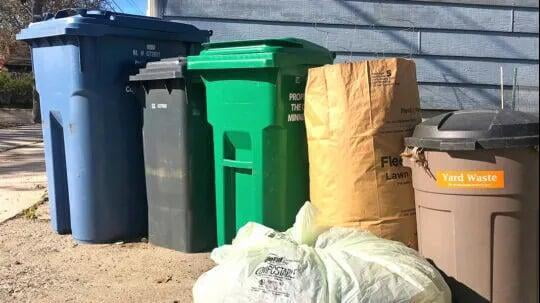In mid-March 2024, the U.S. Senate passed two pieces of bipartisan legislation focused on improving the recycling and composting system in the U.S., and it has been referred to the U.S. House of Representatives for passage.2023 In April 2023, the three Senators on the Environment and Public Works Committee, Senators Shelley Moore Capito, Tom Carper, and John Boozman, reintroduced the bill as passed.
The Recycling Infrastructure and Accessibility Act of 2023 would create a pilot program to increase access to recycling services in underserved areas, such as rural communities in West Virginia.
The Recycling and Composting Accountability Act (RCAA) would improve the U.S. Environmental Protection Agency's (EPA) ability to collect data on the U.S. recycling system and explore opportunities to implement a national composting strategy, including the U.S. ability to implement a national residential composting strategy. The bill also directs EPA to issue a report identifying potential barriers to this strategy and assessing existing composting programs across the country.

Other elements of the RCAA include:
Create a comprehensive data base by requiring the Environmental Protection Agency to collect and report on the prevalence of recycling and composting programs nationwide, the types of materials and contamination rates accepted by each program, and community access to curbside recycling and composting.
Directs EPA to prepare a report on the end-market sales of all recyclable and compostable materials collected from households and public waste disposal centers. It also directs EPA to develop an indicator to examine the proportion of recyclable materials in the commercial and municipal waste streams that are diverted from the recycling market through elimination or disposal.
Develop voluntary guidelines for state, local, and tribal governments to enhance recycling and composting, including standardized labeling techniques for waste containers, recycling, and compostable materials; off-the-shelf brochures and other printed materials on recycling; educational resources for elementary and secondary schools; web- and media-based educational campaigns; and labeling guidelines for recyclable and compostable materials.

